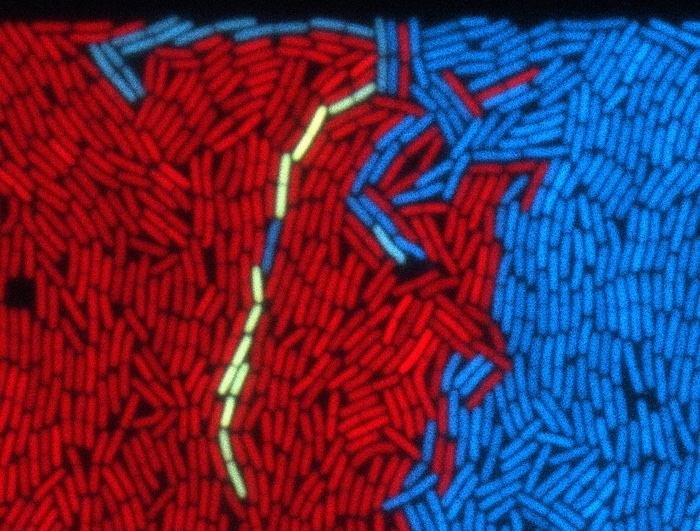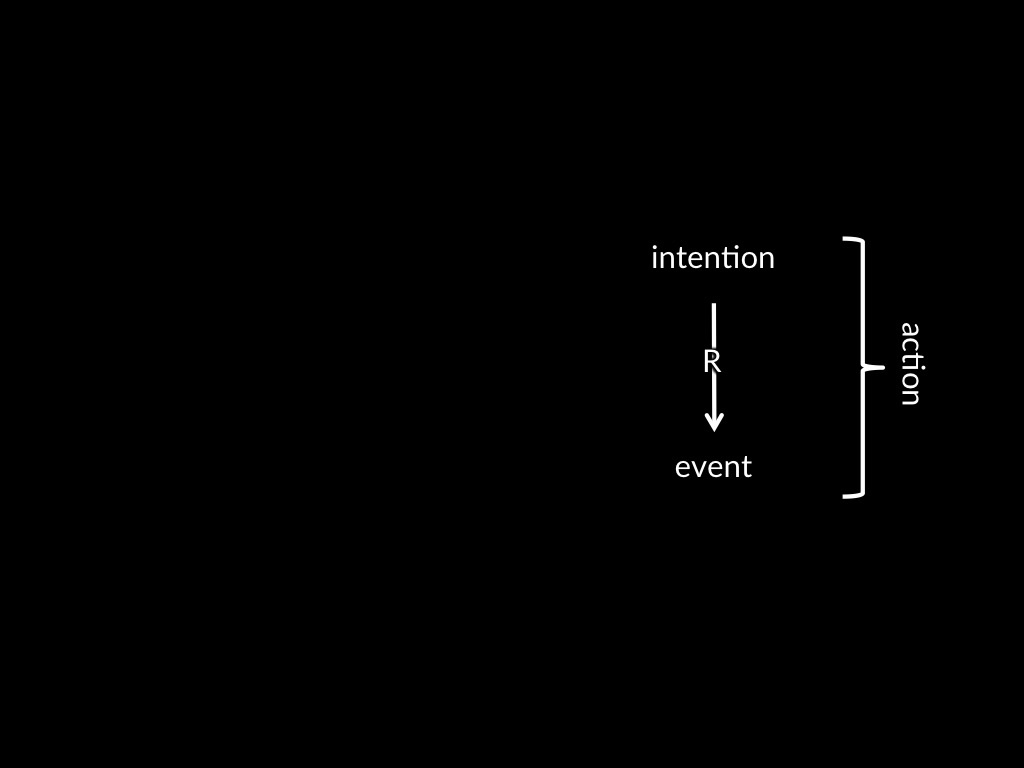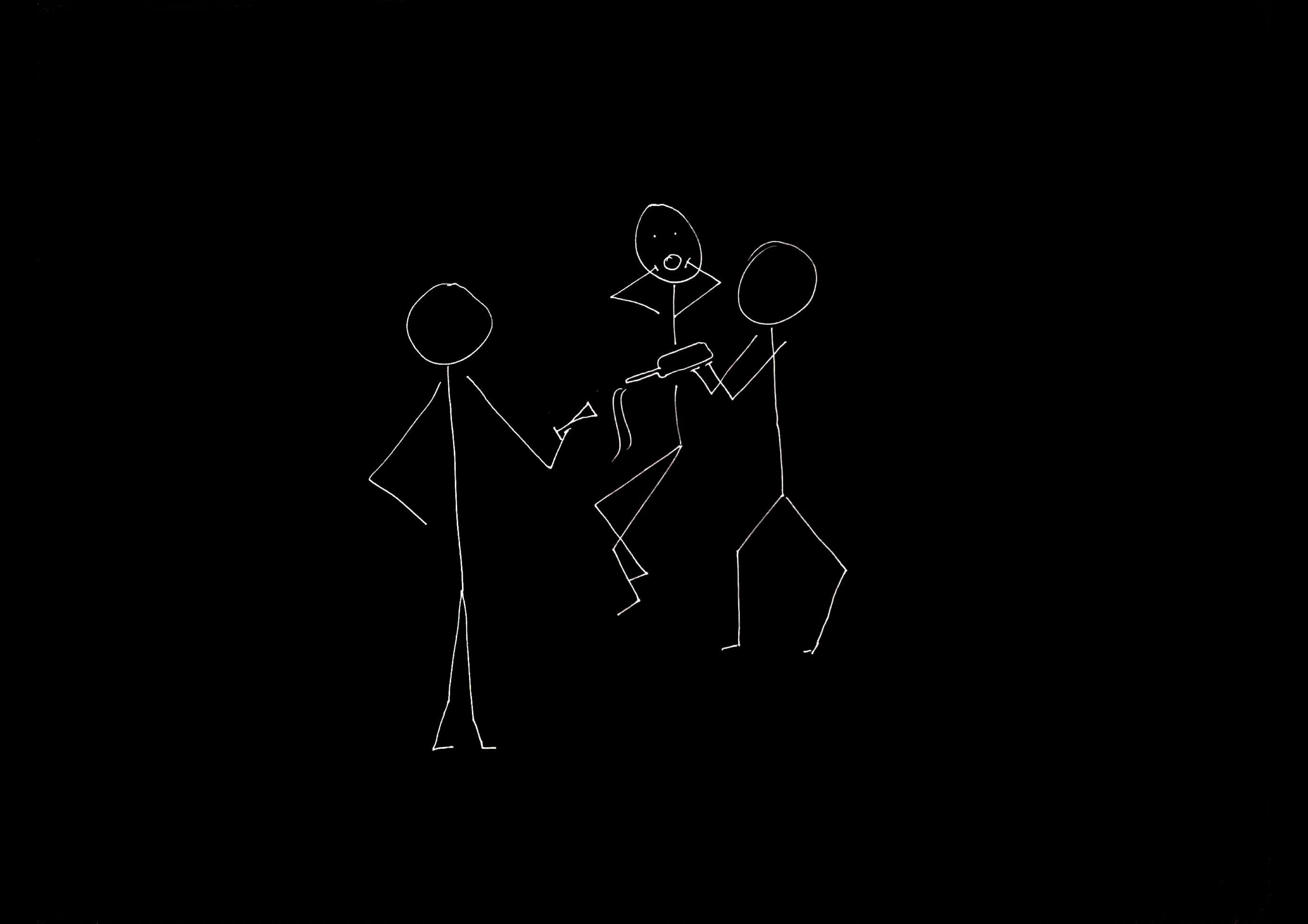Click here and press the right key for the next slide.
(This may not work on mobile or ipad. You can try using chrome or firefox, but even that may fail. Sorry.)
also ...
Press the left key to go backwards (or swipe right)
Press n to toggle whether notes are shown (or add '?notes' to the url before the #)
Press m or double tap to slide thumbnails (menu)
Press ? at any time to show the keyboard shortcuts
Introduction

challenge
Discover why people act,
individually and jointly.

challenge
Discover why people act,
individually and jointly.

two basic questions about action ...


What distinguishes your actions
from things that merely happen to you?

What is the relation between an instrumental action and the outcome (or outcomes) to which it is directed?
Question 1
What is the relation between an instrumental action and an outcome to which it is directed?
Standard Answer
The outcome to which an instrumental action is directed is that outcome specified by the intention which caused it.
Question 2
What distinguishes your actions from things that merely happen to you?
Standard Solution
Your actions are those events which stand in an appropriate causal relation to an intention of yours.
How do the philosophical theories relate to psychological discoveries about why people act?
discovery: there are habitual and goal-directed processes
Lecture 01: There are theoretically coherent models
Lecture 02: ... but does either actually explain any actions?